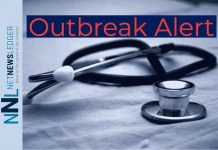Thunder Bay – COVID-19 Update – The federal government is currently facing a conundrum regarding the surplus of 39 million COVID-19 rapid tests, as revealed by an internal memo from Health Canada. The authorities are striving to find a responsible method to manage these excess tests without resorting to wasteful disposal measures.
Back in late 2021, during the height of the Omicron variant surge in Canada, the government quickly secured a large quantity of rapid antigen tests. A considerable fraction of these tests was swiftly distributed to provinces, aimed at enabling easy self-administered testing for the virus at home.
Now, the landscape has changed, and a surplus of these tests exists. The government’s objective is to find a way to employ these valuable resources effectively in ongoing efforts to combat COVID-19, rather than simply discarding them.
As the number of people undergoing COVID-19 tests outside of hospitals and healthcare facilities diminishes, the government is left grappling with a surplus supply, seeking the best strategy for their utilization. This memo was disclosed through federal access-to-information laws.
In early 2022, these rapid tests played a vital role when regular testing capacities were predominantly reserved for specific cases in many provinces. Canada has invested approximately $5 billion in rapid tests throughout the pandemic.
Even with the initial dip in Omicron infections, the government continued to amass tests in anticipation of another major infection wave.
However, the expected surge didn’t materialize, and with public health restrictions gradually easing, the government ended up with a substantial reserve of around 93 million tests by March 21. As of July 25, Health Canada reports that the stockpile still exceeds 90 million tests.
Currently, provinces and territories have enough supplies to distribute eight tests per Canadian. To brace for future emergencies, the federal health department plans to maintain a reserve of up to 55 million tests, resulting in an excess of 39 million tests as of the end of March.
While various methods to dispose of the tests were proposed by staff, each option presents its own challenges, with their limited shelf life of one to two years being a significant hurdle.
To date, no tests have been discarded. However, the department has identified 2.1 million tests that are damaged, expired, or “non-compliant,” making them unfit for distribution. The memo also reveals that an additional 38,722 tests are projected to expire in August and September. The bulk of the tests are slated to expire in 2024.







